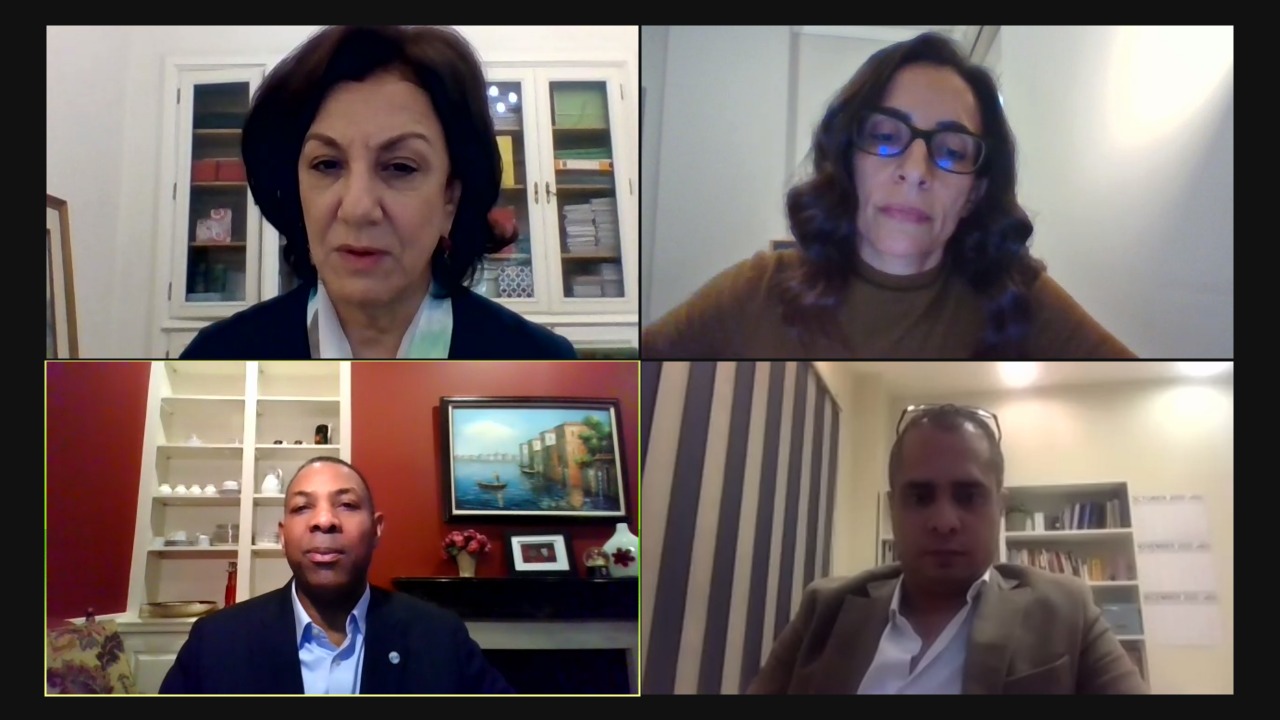On December 14, three experts from Egypt and abroad came together at Business Forward’s annual event –the first ever to be held online- to discuss how Egypt’s SMEs community rode through the shocks of the COVID-19 pandemic.
Offering a macroeconomic picture was Mohamed Youssef, chairman and chief executive officer of Dcode Economic and Financial Consulting (Dcode EFC), who laid out the very difficult conditions that were already present in the Egyptian economy before the crisis hit.
The local market was already reeling from low consumer confidence, according to Youssef, who said was due to the rising costs of living and lower savings, also leading to lower levels of consumer spending.
COVID-19 only exacerbated the problem. “Because of the deterioration of operating conditions and lockdown measures, that gave a hit right away,” he said.
“Whenever there is a downturn in the economy, there are certain enterprises that are not resilient enough to continue”, however, Youssef maintained that there are always certain kinds of enterprises who are perfectly placed to thrive during such downturns.
He echoed a sentiment that economic crises usually lead to booms in creativity and innovation. “I think that is what is currently happening in the global economy and the local economy as well.”
Youssef said that at Dcode, they identified the agriculture, e-commerce, ICT, healthcare, medical supplies and services, and food processing and retail sectors as potential winners in the COVID-19 pandemic.
He commended local businesses for the creativity they have shown throughout 2020 to turn the crisis into an opportunity. “When it comes to the problems faced by entrepreneurs, we have always seen in Egypt a resilience to take every hit and continue.”
Offering an outside perspective was Winslow Sergeant, the incoming chair of the US-based non-profit International Council for Small Business.
Before COVID-19, Sergeant said, globalization led to manufacturing shifting to the cheapest markets in the world, with global supply chains bringing the cheapest products to the entire world, outcompeting small businesses who were forced to shutter.
Amazingly, the pandemic had a significantly positive impact on small businesses, he said, which was especially the case “within emerging markets like Egypt.”
“One of the big disruptions we saw right away was the impact on supply chains because of the lockdown and there wasn’t this movement across borders. What that did was give an opportunity for SMEs [small and medium-sized enterprises] to really fill the void.”
COVID-19 forced businesses to seek solutions inside their own markets, he added.
“In Egypt, for example, things like masks, [medical] supplies, goggles or things that people had to use and may not have been able to get access to, small businesses and entrepreneurs were able to fill the void.
“One of the things that will strengthen Egypt going forward is its very young and talented society that understands how to use digital marketing and the digital economy. I was recently in Aswan and I saw a gathering of entrepreneurs coming together [to look] at some of the local things that can be done to serve that market.”
Sergeant stressed the key role that SMEs play in driving growth and employment. “Two out of every three net new jobs are created by SMEs and for economies to grow, we must support this sector.”
Hala Barakat, director of the Centre for Entrepreneurship and Innovation at the AUC School of Business, spoke at length on the admirable efforts and achievements of Egyptian startups through 2020, which she attributed to the specific characteristics of the region.
“Because we originate from markets that are largely defined by ongoing high risk and uncertainty, I believe entrepreneurs and startups in Egypt and the region have really performed well,” she said. “Surviving the pandemic required resourceful teams. We have seen teams that were able to sustain operations with very limited resources quite well during the past year. They swiftly reinvented their business models [and] worked through bare minimum sales.”
Adding to Youssef’s point, Barakat said she saw notable levels of innovation during the COVID-19 crisis, mentioning that leaps and bounds were achieved in online learning and telemedicine. How far many startups came in the digital revolution in the last year, she said, was achieved over the previous 10 years.
“The silver lining of the pandemic is that it really propelled technological adaptations in our market and society. The true essence of entrepreneurship here is that, through the past year, they identified unmet needs and moved very fast to get the needed product to the market.”









